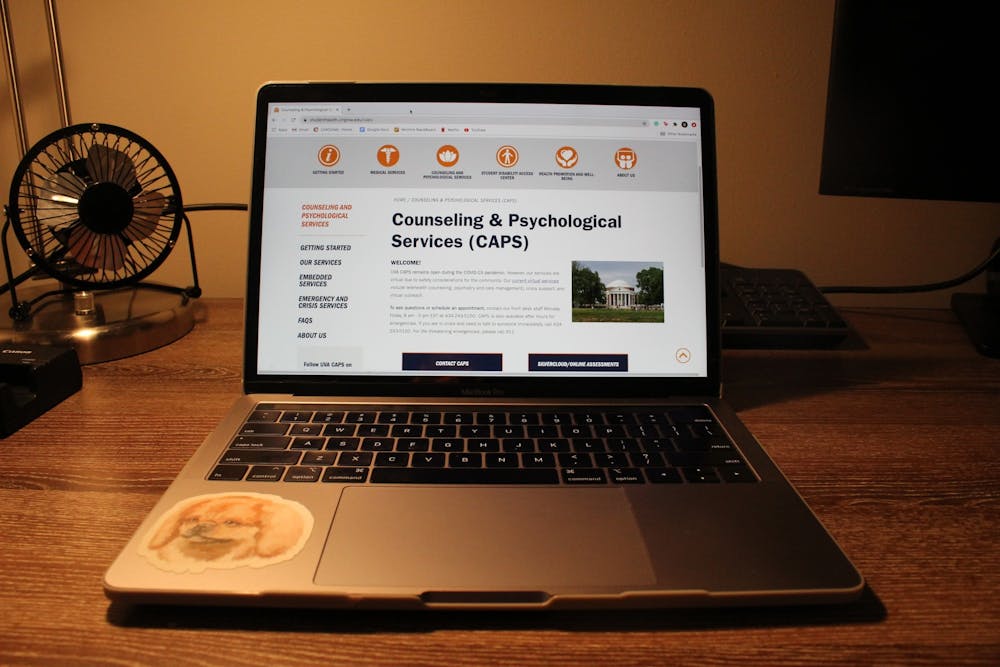Under ordinary circumstances, the fall proves to be a challenging time for college students. As the semester reaches its midpoint, they are inundated with the increasing demands of academic and extracurricular obligations. However, this is no ordinary season, with the stresses of a global pandemic — including the looming threats of quarantine, isolation and economic insecurity — compounding the preexisting strain that comes with a typical fall semester. Indeed, this year, students face unprecedented challenges — challenges that will inevitably impact their academic achievement. As such, the University has an obligation to recognize these extraordinary circumstances as they are — extraordinary — and, in doing so, protect students’ mental health as paramount to their success.
When it announced its plans for the fall semester, the University anticipated a challenging start. In addition to mandatory mask-wearing, limited social interaction and primarily virtual classes, students were guaranteed a semester without a fall break or Family Weekend in an attempt to minimize unnecessary travel to and from Grounds. Many first-year students in particular felt the effects of these changes almost immediately, as they were forced to move in and adjust to the challenges of college life in the midst of an academic week. These difficulties were only exacerbated when several first-year dorms were placed on lockdown early in the semester, forcing many students to enter quarantine and isolation housing or to simply return home. In addition, many students who chose to stay at home this semester are dealing with similarly difficult situations, as they are forced to balance familial and economic obligations with the rigors of academic life. Obviously, this semester is remarkable, necessitating nothing less than a remarkable response from the University administration — a response it has failed to deliver thus far.
Mental health struggles impact students’ college experiences every year, and this year is no exception. Anticipating the challenge of a semester shaped by academic burdens without ordinary social benefits, much of the University’s mental health services — including Counseling and Psychological Services, the Maxine Lynn Platzer Women’s Center and WahooWell — moved resources online in an effort to support students from afar. However, this change is, quite simply, not enough. Access to such support rests on the assumptions that students know of its existence and are comfortable requesting services — both of which are unlikely among first years and transfer students who have limited experience with University resources and life on Grounds in general. Asking for medical services can prove challenging under normal circumstances and, when forced to navigate the process online, many students may simply choose not to do so. Further, for students living out of state, there may be legal barriers that prevent them from receiving treatment from Student Health. As a result, the mental health of students both on and off Grounds has been tragically unaddressed and overlooked.
In situations such as this, it may seem as though the University has done all it can to help its students, especially in light of a recent decision to reinstate a system of opt-in credit/general credit/no credit grading this semester. However, the benefits of such a system are deceptively misleading and may even prove detrimental to students’ mental health. Indeed, in providing students with such a choice, the University seeks to alleviate the stress of academic responsibilities in such an unprecedented time. However, in making the system a choice and not a universal obligation, the University in fact presents students with another, more pressing source of anxiety — that of choosing between their own well-being and future academic and career success. Regardless of their present circumstances, many students will likely still choose to opt into a system of traditional grading in an effort to bolster postgraduate applications and resumes, in turn forfeiting their mental health. Once again, the University has met extraordinary circumstances with a mediocre response — a response that has sacrificed the well-being of its students in the process.
In contrast to the current opt-in system, a universal credit/general credit/no credit system would more appropriately serve to benefit students who need it most without forcing them to weigh the repercussions of prioritizing their mental health. Perhaps of even greater import, the University is obligated to implement programs of outreach and advocacy regarding available mental health services. Students — many of whom have never experienced the challenges of independence and are still navigating life on Grounds — cannot be expected to seek mental health treatment alone.
If the University wants to act in the interest of student well-being, it must first acknowledge the limitations of its present system. Like its counterparts at the University of North Carolina at Chapel Hill, the University must address the obvious mental toll of a semester without fall break or Family Weekend. For example, the University could institute mandatory mental health days throughout the semester in which instruction is canceled and students are encouraged to focus on themselves in an effort to normalize self-care. Such a practice, especially if implemented in the middle of an academic week, would neither encourage travel outside of Grounds nor severely compromise academic progress.
This semester poses unprecedented challenges to the University administration and students alike, reshaping social and academic pursuits at all levels and forcing us to reevaluate aspects of life on Grounds. The psychological burden of life in the era of COVID-19 is not and should not be the burden of students alone. Indeed, if the University wants to maintain a culture that is both “great and good,” it must provide students with the extraordinary resources necessary to succeed in extraordinary times.
Maddie Stokes is a Viewpoint Writer for The Cavalier Daily. She can be reached at opinion@cavalierdaily.com.
The opinions expressed in this column are not necessarily those of The Cavalier Daily. Columns represent the views of the authors alone.







